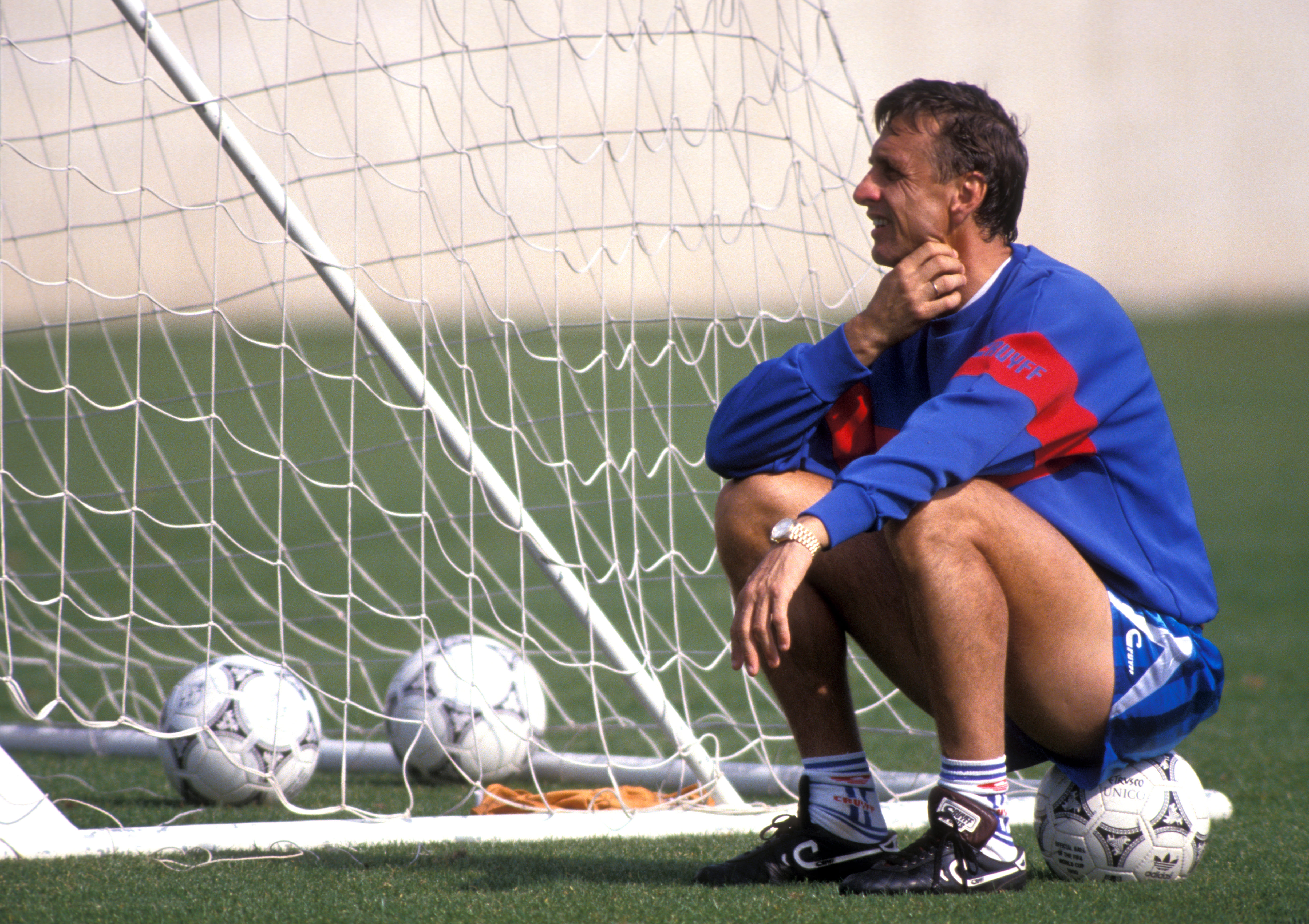Nathan Jones channels Southampton misery to drive Charlton to the Championship
The Welshman is taking the long road back, and taking the Addicks with him

If you don’t do your own PR, nobody else will do it for you. Many a manager thinks this way, not just in football but in offices across the globe. Few, however, need self-promotion quite as much as Nathan Jones, even after an actual promotion out of League One with Charlton Athletic.
Speaking to the media at Wembley following his side’s 1-0 win over Leyton Orient, Jones was given several opportunities to reflect on his up-and-down journey to this point. He did not pass them up.
“I’ve always taken bold jobs,” the Welshman declared. “In every job I’ve taken, the club has been in turmoil. When I first went to Luton, they were 18th in League Two. They ended up in the Premier League. When I went back to Luton, they were bottom of the table, seven points adrift with nine games to go. We stayed up. When I went to Stoke City… don’t even get me started on that. Then when I went to Southampton, they were on a downward spiral for a long time. So, I’ve taken on some real tough jobs, and backed myself.” Call him Mr Muscle, because he loves the jobs you hate.
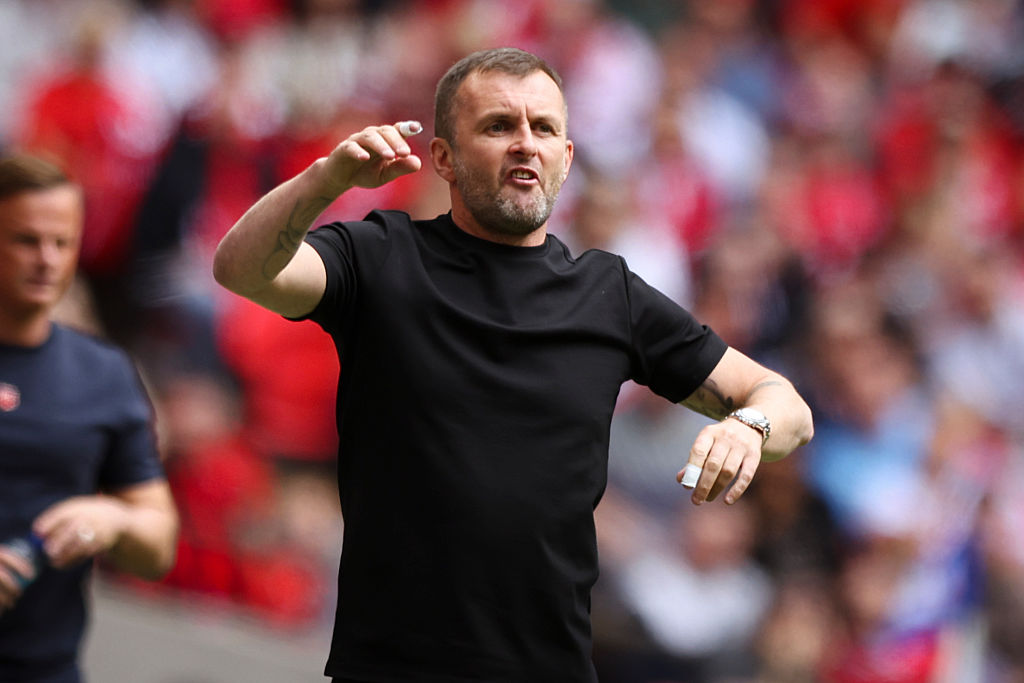
Inserting yourself into difficult scenarios can make or break your reputation. Unfortunately and unfairly, whereas some managers are able to bend narratives to their will through force of personality, exerting a sort of gravitational pull on the media, Jones’ magnetism seems to repel respect rather than attract it. In short, he’s seen in some quarters as… well… just a bit weird.
The parable of the ping-pong table always comes to mind. At Luton, he felt that his players’ table tennis league was taking up too much time and brain space, so he destroyed the table and set fire to it. Well, what else could he do, apart from ‘almost anything’? A colleague described the act as “performative psychopathy”, a wonderful phrase, but in Jones’ mind it clearly made a sort of sense. For better or worse, he is the world’s most intense human being – just observe his pitchside convulsions and prayers (he’s a devout Christian) at the end of the play-off semi-final second leg.
That intensity alone draws critics his way, but in the harsh spotlight of the Premier League, managing Southampton, he also talked himself into trouble. When Saints lost to 10-man Wolves, it was because the red card “made it a free hit for them and added more pressure for us”. Self-promotion was common. He became a living meme. But as Jonathan Liew put it in The Guardian, “Jones’ quips and gaffes were taken as a symbol of irrepressible self-confidence; perhaps even arrogance. In fact, like all the best sitcom characters, Jones always struck me as a man wracked with self-doubt.”
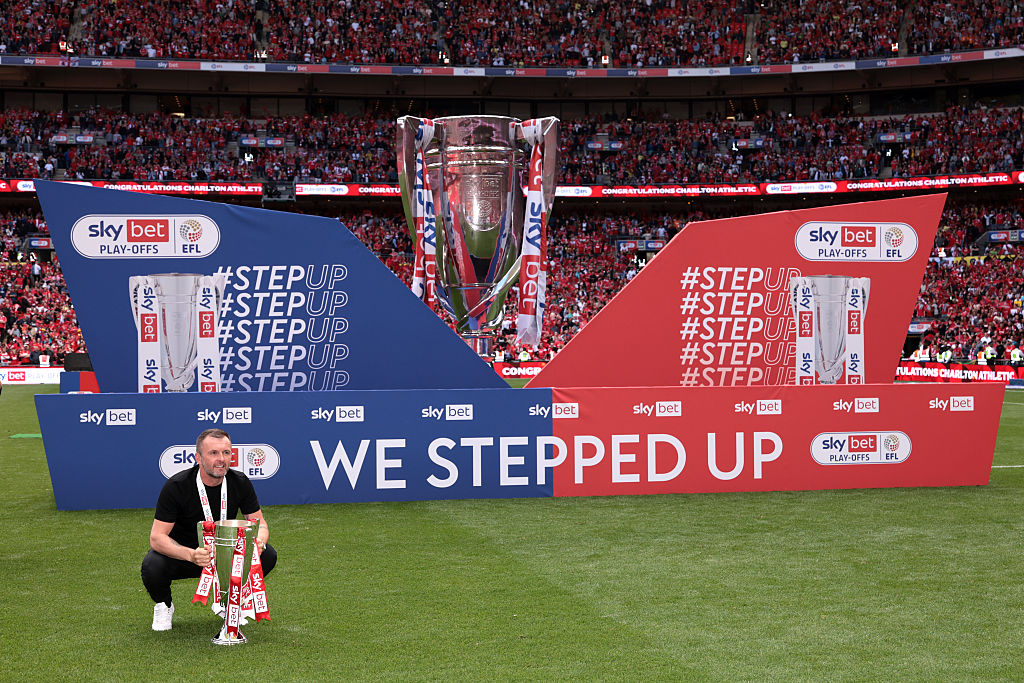
Even in the warm afterglow of Charlton’s Wembley triumph, the 51-year-old was asked about his Southampton spell. “I just wasn’t accepted,” he explained. “But I’d earned my stripes. I’d done League Two, League One, Championship, and proved at every level that I can get results. I actually proved it at Southampton: I got five wins out of 14 games. I’m not sure there’s a manager since who has got that. It wasn’t meteoric, but I think if I had flown in from somewhere then I would’ve got a little more time. A young Welsh guy from thing [presumably referring either to Luton Town or Blaenrhondda, the village where Jones grew up] maybe wasn’t big enough for Southampton. But I’m big enough for Charlton, and I’m very proud of that.”
The best features, fun and footballing quizzes, straight to your inbox every week.
And so, having climbed rung by rung over six or seven years, Jones found that his next port of call after the Premier League was the bottom end of League One. No cushy Championship job with parachute payments and excellent players – he was picking up the pieces at a club occupying their lowest league position in nearly 100 years.
Jones was determined that would only be temporary. “I didn’t drop to League One to become a League One manager; I dropped to League One to manage Charlton,” he explained at Wembley. Taking them up in his first full season is especially impressive when you consider the league’s shark-infested waters in 2024/25: not just Birmingham and Wrexham but Bolton, Huddersfield and Rotherham – all shorter odds for promotion before the campaign kicked off – as well as Stockport, Blackpool and Peterborough, among others.
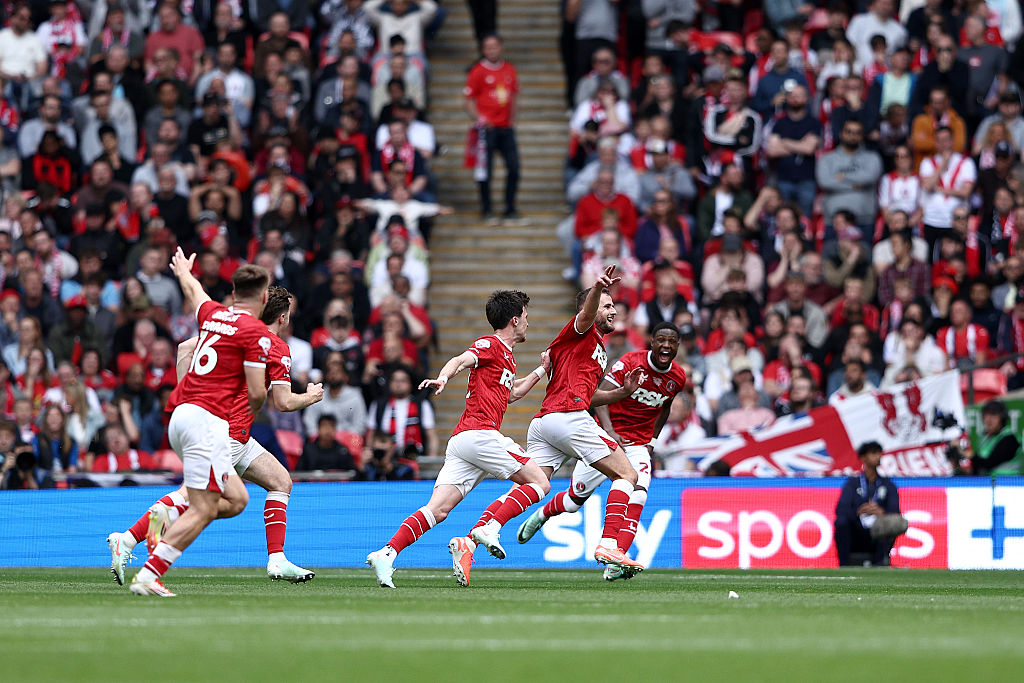
The final itself against Leyton Orient was largely forgettable, but that’s how Charlton liked it all season. Including the play-offs, they kept 23 clean sheets in 49 matches and won 24 of the 25 games in which they scored the first, drawing the other. Let that statistic percolate for a moment, because it’s nuts. To go behind to Charlton is to find yourself in quicksand, fighting a slow death.
Yet it wasn’t always this way. Jones has earned a reputation for attritional football, but his first Luton side were genuinely exciting. Playing an expansive 4-4-2 diamond formation with future Premier League full-backs Jack Stacey and James Justin bombing up the flanks, the Hatters won automatic promotion from League Two in 2017-18 by scoring 94 goals – some 15 more than anyone else in the division. He has shown he’s adaptable, tactically, but recognised at Charlton a need for solid foundations before, in his words, putting the roof on.
The tactics change but the intensity remains, and it’s visible in his Charlton side. Perhaps that’s why he called the promotion his career highlight. “This is categorically the biggest thing,” he said. “Regardless of going to the Premier League, being promoted five times as a player, play-off campaigns as a manager, as an assistant and everything, this is the biggest. I was a lot more reserved than I thought I’d be, because I just wanted to take everything in.”
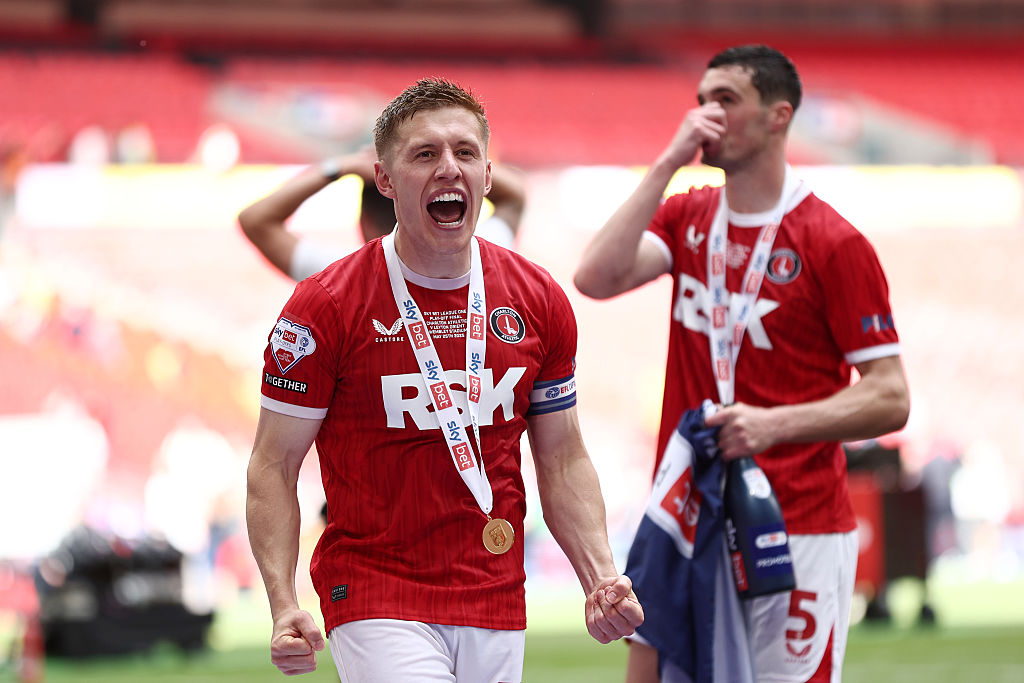
‘Reserved’ isn’t a word he’ll often have associated with him, but Jones has seemingly come to realise that if he doesn’t tell people who and what he is, they’ll do it for him in a way he might not appreciate. His opposite number at Wembley, Orient’s Richie Wellens, is also used to talking up his own impressive achievements, because clubs higher up the food chain don’t seem to have noticed them. You don’t get anything for free in football.
Will Nathan Jones ever return to the Premier League? Perhaps, perhaps not. But his Charlton side will make life difficult for a lot of Championship teams next term, and then the general perception of their manager might change. He said at Wembley that he has learned from difficult spells but that “someone who’s very successful in life once told me: ‘Try not to have too many learning curves’”. Those curves have created a potential redemption arc for Jones, and the initial excitement about his ability could yet come full circle.
Huw was on the FourFourTwo staff from 2009 to 2015, ultimately as the magazine's Managing Editor, before becoming a freelancer and moving to Wales. As a writer, editor and tragic statto, he still contributes regularly to FFT in print and online, though as a match-going #WalesAway fan, he left a small chunk of his brain on one of many bus journeys across France in 2016.
 Join The Club
Join The Club





